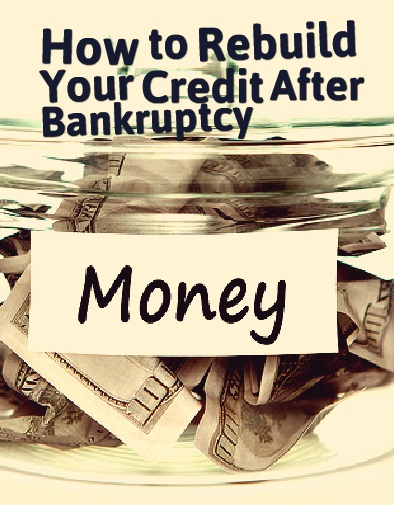
Budget to rebuild your credit after bankruptcy.
After you go bankrupt it can seem like you will never have good credit again. However, the good news is that this bankruptcy will not be with you forever. It will come off of your credit reports after seven to ten years.
Take this as an opportunity to rebuild your credit and take control over your finances. Create a ten year plan for what suits your life right now. That could be saving for college, saving for retirement, paying off your home loan, saving for a home, etc. This is an opportunity to rebuild your credit after bankruptcy.
STEP ONE:
Get rid of the guilt you may be feeling. You are not alone. In 2010 there were more than 1 million bankruptcy cases filed. This is a last resort step and you had to take it. Don’t allow guilt to get in the way of building a better future. Beating yourself up about this is not going to do anything for you, except give you more stress and sleepless nights. Let go of the feelings of failure, and allow yourself to get back on track.
STEP TWO:
Create a realistic budget. If you are not sure how to do this, a life or business coach who specialized in financial management can help you. Write down all of your net income for one month. Go through your bills and write down all of your expenses.
Before moving on to the next step take a good look at your expenses. Is there anything you can live without? Common expenses that can be taken out are cable TV, cell phone plans, dining out, cutting back on electricity use, and spending less on beauty (hair, nails, tanning, etc.).
Cut out anything you do not need, reminding yourself that you will have more money for savings. Your income should be much higher than your expenses. You need to aim to live lower than your means. Pay all of your bills on time.
STEP THREE:
Understand where your money goes every day, week, month, year. Start a journal. Write down everything you are spending money on. When you go to the store write down what you bought and categorize it. For example, a journal entry might look like this:
July 30, 2012
Café - $5.50 coffee
Restaurant - $25 lunch
Convenience store - $14 ($7 cigarettes, $7 soda)
At the end of each day put this information in your computer in an Excel file. Add everything up for the month.
The above expenses are obviously not necessary. You could brew coffee at home, make your own lunch, quit smoking, and not drink soda. These are not necessities, and that is the pattern you will begin to see with your expense journal. You’ll start to see where your money is being wasted.
Find new ways to do things so the only money you are spending is necessary. What’s a necessity? Your mortgage or rent payment, electricity, water/sewer, phone, and groceries. Those are your basic necessities. You’ll also need to spend some money on clothing. Instead spending hundreds at one time on your wardrobe, set aside $25 a month to spend on one item of clothing.
STEP FOUR:
Find a credit card that you can use to rebuild your credit after bankruptcy. It is a gradual process, but it is feasible. You can use a secured card to help you gain better credit. A secured card is one that you put money on first, usually through a bank account. That then becomes your credit line to use.
Make sure any card that you apply for reports your payments to the three credit bureaus, and watch out for high fees. Some secure cards will even offer you a raise in your limit without a deposit from you. This is an award. Always keep your credit card balances below 20% of your credit limit, and pay your bill on time.
Stick to these steps for a happy and healthy bank account. You’ll feel more secure with more money in savings and a better grasp on your budget.




























COMMENTS